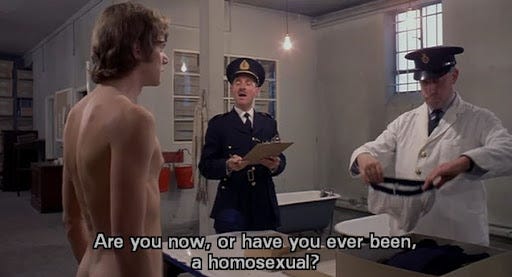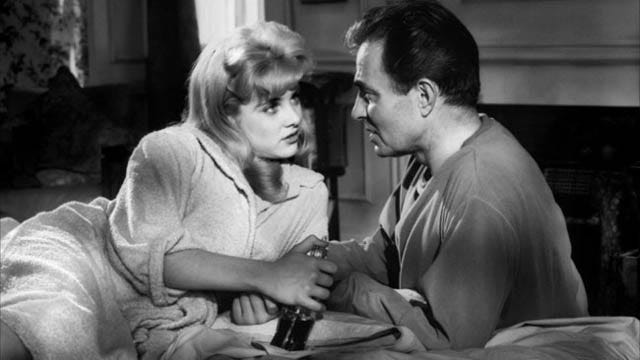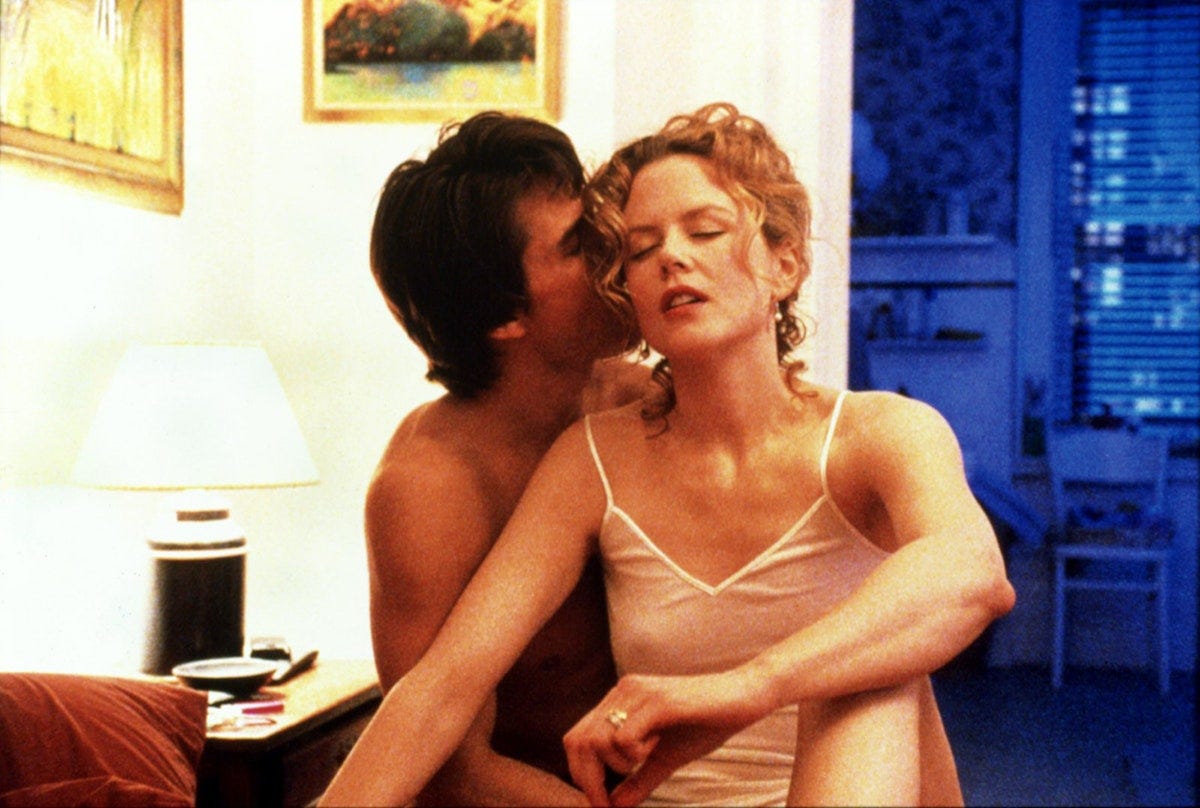David Davis X
On monogamy

Warning for discussion of sexual assault and incest
I never wanted to be a sex writer. Sex writers seemed to be too easily pigeonholed, and thus limited, by a topic that’s rarely interesting when not at least a little bit taboo. With online writing, these limitations feel even more limiting, what with the way we must categorize everything and everyone so as to make them more easily indexable, taggable, and legible.
The label-maker approach to the world is a problem we both bemoan and fixate on—just pop your head into any of the simmering online debates about whether dykes can “be” bisexual, transsexual, or gender-conforming. How else are we to organize and manage our art—our output, if you will—if not by its legibility, which is another way of saying marketability, which is another way of saying profitability?
But as the saying goes, everything is about sex, except sex itself, which is about power, and since power is the thing with which I’m primarily concerned, a lot of the work I’ve done would probably be safely categorized as being about a particular kind of intimacy. Over my decade or so of public writing, from my first blog (whose URL I can’t share without exposing my deadname), to my criticism, to my informal column over at Lifehacker, I’ve learned to more or less embrace having become a sex writer of sorts. Perhaps it was inevitable. As a dyke and a transsexual, I am sexualized merely by existing: There is no way for me to write from my perspective without writing about sex, too, at least sometimes anyway.
When I was 17 or 18, I loved A Clockwork Orange, because Burgess’ book is really a wonder of the craft and because Kubrick’s film is sexy and because who doesn’t love that beau laid little freak, Malcolm McDowell?, and because I was a white teenager, so of course I did. But when I sat my high school boyfriend down to show him my exciting new find, he made me turn it off within the first 20 minutes. One of its disturbing rape scenes upset him, I was surprised to learn; he did not want to see any more.
Though I respected his wishes, I privately thought that my boyfriend was a coward. Were we women really supposed to center men in every aspect of our lives only to have them pretend that the hot, mulchy root of that centering was just too much for them to bear witness to? Was this boy really going to tell me to my face that he didn’t like watching a man rape a woman when the culture in which that rape was normalized—celebrated, even, judging by the college-aged white men who glorified Clockwork’s violence to the point that Burgess himself would officially “repudiate” his beautiful book—infiltrated everything, including our relationship?
To be clear, this boyfriend was not violent with me, but even at 17 or 18 I couldn’t understand how a person who didn’t want to see graphic depictions of rape and who was also quite comfortable having regular sex with an almost completely passive partner was not some kind of hypocrite. How dare you pretend not to be titillated by the violence when you enjoy the power it undergirds? an inarticulate corner of my brain raged. If our fear, pain, and humiliation could be justified by anything, it had to be the pleasure that men took in tearing them from us. (Is this an example of my own codependence, projection, and trauma-born black-and-white thinking? Yes. Is this also an example of a canny if rudimentary early grappling with rape culture? Also yes.) (For what it’s worth, these days I avoid watching movies with rape scenes in them. Can’t stomach it.)
Since then, I’ve been given plenty of opportunities to be offended by the rationalization of affective response as a means of dodging individual responsibility, but that experience with my first boyfriend was a lesson in the way that power, particularly the sometimes passive kind we are accorded because of our gender, race, class, “orientation,” etc., prefers not to see its own reflection. When I began to learn about anti-racism a few years later, I experienced the phenomenon from the other side as I slowly came to terms with my own racism and the whiteness that protects and excuses it. Of course, I did not want to think about the racist things I knew that I had said, tolerated, or cravenly ignored; I still don’t. But to ignore my past racist behavior would not only have been to participate in the future reproduction of it, but to add unnecessary insult to the primary injury.
Because it sucks to be harmed, but it sucks even more to be told by the one who harmed you that the harm they caused is somehow lessened because it was not entirely their fault.

Sex writers are supposed to be Carrie Bradshaw or Anaïs Nin—glamorous, adventurous people who are sexier (not as in “better looking” but as in “hornier”) than the general population, for whom hedonism and field research are one and the same. While I don’t feel like the sex writer “type,” I can’t deny that my erotic practices are dissimilar from pretty much every definition of sexual normativity. What’s funny about THAT is that those practices are mostly organized around the fetishization of the norms from which I’m excluded and which I’ve disavowed, including and especially heterosexual monogamy, the most fetishized sex act of all. Which is to say, even though sex writers are supposed to be ~different~, in a way we’re actually the same as “normal” people, just much more so.
The dominant culture teaches us that pretty much everything that is not heterosexual monogamy is a paraphilia—a fetish (the definition of “paraphilia” has recently evolved to be less stigmatizing of people who aren’t vanilla cishet men. Officially, anyway, these days it’s not a paraphilia unless you’re distressed by your BAD desire and/or your sexuality is actively hurting others who aren’t consenting or can’t consent). Monogamy, as a facet of heteronormativity and colonialist whiteness, lives atop deviant sexual practices, like a McMansion over catacombs. As a characteristic of normalcy, it produces deviance by delimiting everything outside it as such. It’s no wonder that so many of our pervert erotics are a mirror image of that normalcy. We who are otherwise ideologically opposed to that sort of thing are fucking and nutting and playing to archetypes inspired by it: I’m cheating on my husband with his best friend. I’m having sex with my stepson. I’m a baby being raped by her parent. I’m fucking my virgin wife on our wedding night.
(A porn idea that I should probably pay someone to make a custom of: a lesbian wedding night where one of the lesbians is a virgin. Like what if there was a world where gay people were not excluded from the misogynist social contract of capital-centric marriage? That is so hot.)
Being a sex writer is to be an outsider looking in, but also a mirror trained on the insiders, showing them themselves. Because no one fetishizes the normies like the normies do. We who are ideologically opposed to heteromonogamy are not the only ones getting off to adultery, divorce, “fauxcest,” being “forced” to be gay, and being “forced” to have sex. Straight, cis, monogamous, and married people are having the same fantasies, looking at the same porn, and playing the same sexual games that we are, but instead of donning the straight lifestyle once in a blue moon (“You know what would hit the spot right now, babe? Some cuck fantasy!”), heteromonogamous people are full-timers. Who’s more depraved, a moonlighter or someone who’s committed to the bit?
As I remember June Amelia Rose tweeting once, how is wearing a wedding ring in public different from wearing an a o-ring at a pride event? Why is our sexual life unacceptable for public consumption, dirty, dangerous, criminal, and damaging to children, and not theirs? (My opinions on whether people should be “allowed” to fuck in public are super on the record. Miss me with your respectability, cop lovers ✌️) What’s more twisted—me putting a ballgag in my girlfriend’s mouth after asking for her consent, or a lifetime of sexual exclusivity with a person you met when you were 20 that must be jealously guarded and enforced through manipulation, coercion, surveillance, and legal machination? Queer people are accused of building our identities around our sexualities, and trans people are accused of trying to force normal people to live in our fantasies of ourselves (while also footing the bill for our expensive surgeries), which sounds like a massive amount of work to put into your sex life until you compare it to marital monogamy—the all-consuming apparatus we’ve built to justify the exchange of capital and the commodification of women and children that can’t be extricated from chattel slavery and anti-Blackness.
(I don’t think people who choose to be sexually monogamous are wrong to do so, by the way. I believe there are intentional monogamists as well as those who do it by default, but that monogamy can be done without codependence or coercion. If monogamy is a mode of romantic and partnered intimacy that works for you, god bless!)

There’s another reason I didn’t want to get pigeonholed as a sex writer: Because writing about sex is seen as frivolous, extraneous, extra. I’ve evolved on that front, as well. As Gayle Rubin notes in Thinking Sex, “Contemporary conflicts over sexual values and erotic conduct have much in common with the religious disputes of earlier centuries. They acquire immense symbolic weight. Disputes over sexual behavior often become the vehicles for displacing social anxieties… Consequently, sexuality should be treated with special respect in times of great social stress.”
Again, how do I write about myself, this moment, these experiences without writing about sex? We cannot separate moral panics about pedophile rings and “white slavery” and sex trafficking and immigration from moral panics about abortion, transsexuals, gay sex, sex work, BDSM, and public sex. As much as I once wanted to be another kind of writer, a respectable liberal thinker rather than a laborious crank or cynical Cassandra or shock jock, one who was not dismissed as frivolous, extraneous, extra, and obscene, at that, I now see that the problem was me, not my work. And I’m not becoming a different person anytime soon, so I might as well embrace it, right?
I hope you will, too. My second novel, X, will be available through Catapult in 2022. I’m excited to share it with you!
David tweets at @k8bushofficial.


I can't wait for your novel. ❤